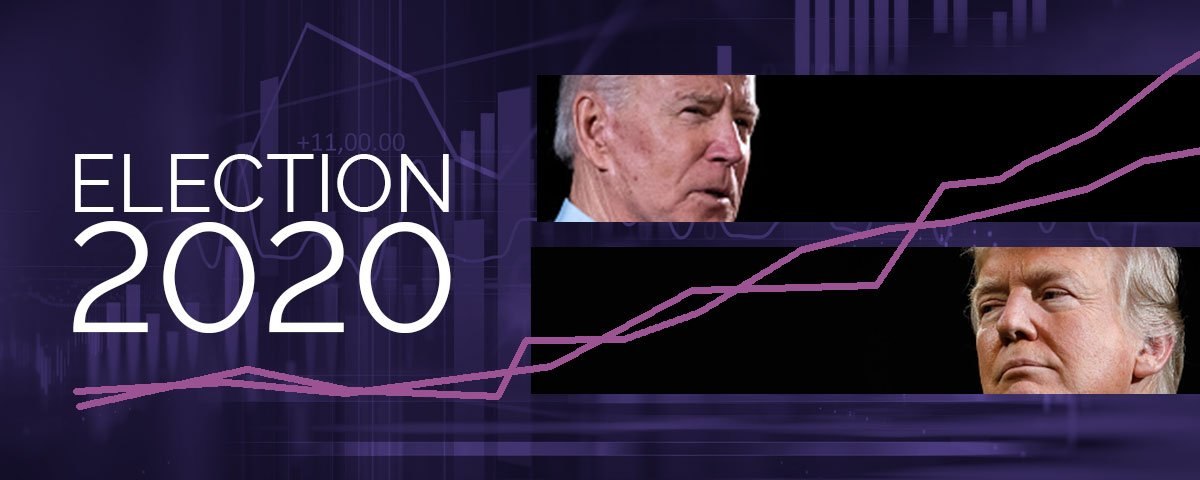The serious part of the 2020 presidential election campaign is beginning. Former Vice President Joe Biden, the presumptive Democratic presidential nominee, has named his running mate, and the Democratic convention is about to start — albeit in an abbreviated form and with participants scattered throughout the country.
In the latest Economist/YouGov Poll, conducted before his vice-presidential announcement, and the last one before the convention begins, Biden enjoys a 10-point lead over President Donald Trump.
Nine in 10 Democrats (89%) currently support Biden, nearly as many Republicans (86%) favor the president. Independents are evenly divided (39% v 38%).
Conventions usually provide a bump in support for the party’s candidate. This year, the two conventions are only one week apart. With the DNC coming first, there will be very little time between its end and the start of the Republican National Convention for any bump to develop. But since both candidates are very well-known to voters, and the conventions will be so different this year, they may not matter as much as usual.
Just about half of Biden supporters say they will watch some of the convention, but a quarter (27%) say they probably will not watch any of it. As for reaching across the electoral gulch, not much should be expected. Most Trump supporters (59%) won’t be watching the DNC at all.
Nearly two-thirds of those who currently claim they won’t be voting for either the president or his challenger won’t be watching any of the Democratic convention at all.
The concept of holding a virtual convention during a pandemic receives a great deal of support. Two-thirds of voters approve of the Democratic convention being held away from a conventional arena, and that includes more than four in five Democrats and most Republicans. Fewer than one in five disapprove. Nine in ten of Biden’s supporters are in favor of the change.
Nine in 10 Democrats also favor Biden giving his acceptance address from Delaware, though Republicans disagree. A third of Republicans approve of Biden’s plan, but 45 percent do not.
As for the president’s suggestion that he delivers his acceptance speech from the White House or from Gettysburg, voters aren’t sure it’s a great idea. Registered voters only narrowly approve of his using the White House for an acceptance speech (45% to 40%) with partisans divided. When it comes to considering the appropriateness of any president, Democrat or Republican, delivering a campaign speech from the White House, voters swing the other way: 36 percent approve while 40 percent do not.
The lack of intense interest in the conventions may be unfortunate, as many voters currently admit they aren’t quite sure about what either candidate will do if elected (or re-elected) president. Less than a quarter have a “completely clear” idea about what the president would do in a second term, just under one in five have a completely clear idea of Biden’s policies as president.
Many of each candidate’s own voters aren’t completely clear about their candidate’s plans if he is inaugurated next January. Still, more than four in five Trump supporters and more than two-thirds of Biden voters say they support all or most of their candidate’s policies.
Related: What Americans think about Joe Biden’s running mate, Kamala Harris
See the toplines and crosstabs from The Economist/YouGov Poll
Methodology: This Economist survey was conducted by YouGov using a nationally representative sample of 1,500 US registered voters interviewed online between August 9 – 11, 2020. The sample was weighted according to gender, age, race, and education based on the American Community Survey, conducted by the US Bureau of the Census, as well as 2016 Presidential vote, registration status, geographic region, and news interest. Respondents were selected from YouGov’s opt-in panel to be representative of all US citizens. The margin of error is approximately 3.5% for the overall sample.
Image: Getty













